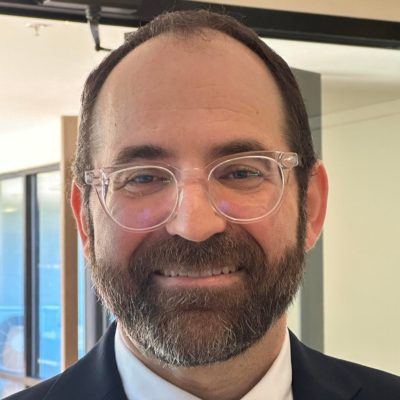“All politics is local.” That phrase was associated with the late U.S. Congressman and former Speaker of the House Tip O’Neill. This week features an Election Day. With so much of our attention focused on Israel and Gaza, we might be tempted to miss all the local and state elections happening this week.
As if to remind us of this, Chayei Sarah tells a local political story. The parshah starts by telling us that Sarah, Abraham’s wife, had died. Abraham needs to bury Sarah and asks to purchase the cave of Machpelah on land held by Ephron the son of Zohar, a Hittite. Ephron refuses to sell. It’s not that he’s unwilling to part with the land — he wants to just give it to Abraham. Abraham won’t take the land gratis, and eventually, he and Ephron strike a deal “in the presence of the Hittites” at the city gate. (Genesis 23:18)
What is the significance of the city gate here? Rashi offers two seemingly opposite explanations. Commenting on the beginning of verse 10, he writes that Ephron had just that day been appointed magistrate over the city. At the end of the verse, “before all who entered the gates of the town,” he writes that they all had put aside their work for the day and come to pay respects to Sarah. So which is it? Does the city gate here represent a seat of local government, as we find in other places in the Bible (e.g., Amos 5:15, “Hate evil, love goodness, and do justice at the city gate”), and as the NPS translation would have it (“the assembly in his town’s gate”)? Or is it a more informal gathering place?
Find more commentaries on Chayei Sara.
This week marks Election Day 2023. There are no regularly scheduled national elections this year; almost every office up for grabs is a local one. We sometimes don’t take notice of local elections because they are, well, local. School boards, city councils, state legislatures. Local elections that fall on odd-numbered years definitely don’t draw a lot of national attention because there aren’t even Congressional midterm elections to fret over.
But local politics matter for our most basic rights. Take this year’s elections in Virginia, for example. Two years ago, Virginia elected Glenn Youngkin, a Trump-aligned governor, and brought a Republican majority into power in the lower house of its state legislature. The state senate remains in Democratic hands.
If only Virginia weren’t “the next big battleground for abortion rights,” as the Associated Press reported in September. If only this year’s odd-year statewide election weren’t looking like the toss-up that it is in both legislative chambers. If only Governor Youngkin didn’t think that a ban on abortions after 15 weeks was a “consensus” position that might stave off electoral defeat for fellow Republicans who oppose reproductive rights. And if only experience told us that politicians opposed to reproductive rights could be trusted on what their allies have come to regard as half measures.
Like, say, a 15-week abortion ban.
Find more commentaries on Politics and Elections.
|
|||
|

